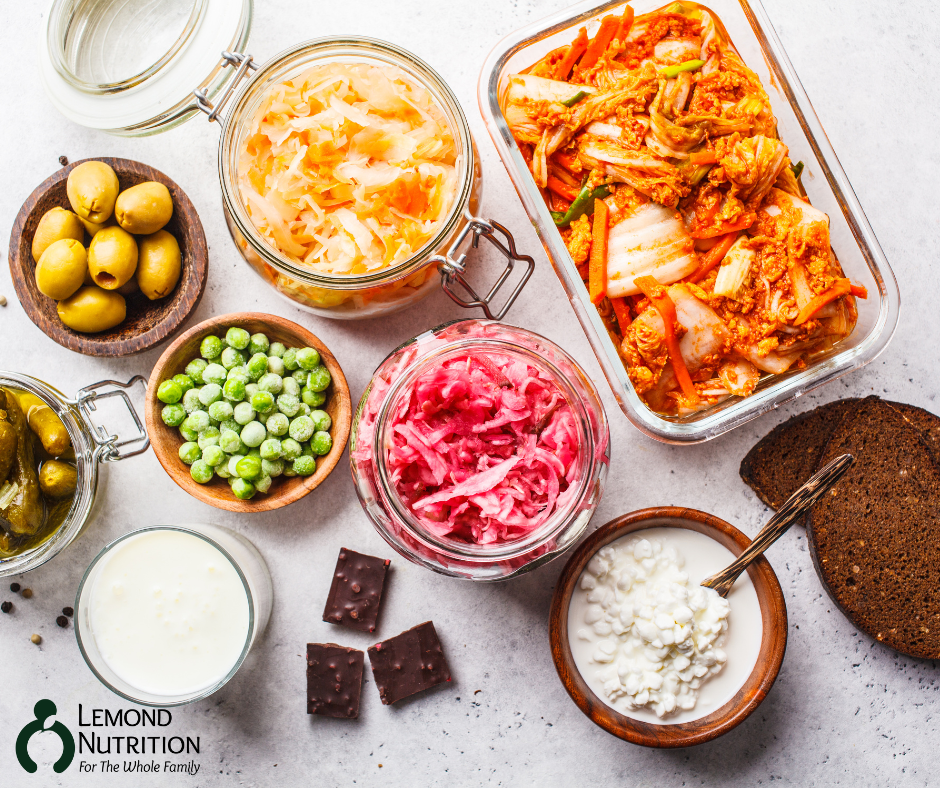Fostering a Healthy Relationship with Food
One of my favorite parts of my job is having the opportunity to work not only with my patients, but also with their support system, offering encouragement and education for the role they are in. The majority of the clients I work with are in active recovery from an eating disorder. For those that know someone with an eating disorder or those that have an eating disorder themselves, you know how vital it is to have a strong support system and for those in your inner circle to be aware of how to promote a healthy relationship with food. Living in a world full of technology, there is a lot of information you must sift through when researching nutrition on your own. It can be difficult to know what is true and where to begin in making shifts. I am hoping to provide a few tips to help make the education process a little more seamless for those wanting to implement a change within the home.
Remove the Judgment
How do we “hit the mark” with food choices for our families when we are living in a world that is constantly promoting a moving target? One diet says this food (enter food here) is a powerhouse, while the other bashes it for its composition. Who wouldn’t be confused? One of the first steps in fostering a healthy relationship with food is to remove the judgment. Let’s not limit this to the judgments about if a food is “good” or “bad” (try to avoid labeling foods!), but rather expand it to less judgment about our own food choices (you are not “good” or “bad” based on your intake). Nutrition is both universal and individualized! Each person needs nutrition to sustain life, although individual needs may vary. This exact reason is why dietitians tailor plans to the individual. The phrase “Comparison is the thief of joy” really resonates with me when it comes to nutrition. It’s easy to see someone’s food intake and make judgments about your own, but how do we account for the fact that everyone has different needs? Challenge yourself to remove any judgments you may be holding about your own relationship with food.
Check in with yourself:
What judgments have you had this week about your own food intake?
Dietitian Tip:
Practice food neutrality with the “all foods fit” mantra.
Set the Example
When doing nutrition counseling and exploring my patients’ relationship with food, I often find that discussing how things with food have progressed over time helps me better understand where we need to focus. With this being said, I think we can all agree, kids are like sponges – they are paying attention. As a parent, it is double duty in the arena of nutrition because we must learn to put aside our own biases with food and sometimes that may mean seeking help on your own relationship with food in an effort to set the example for a healthy food relationship for the child. We receive so many messages about food throughout our lives, but I don’t think we always consider the messages that we send. Take some time to evaluate your own relationship with food. Do you miss meals/snacks? Do you try to compensate through exercise or restricting your food when you feel you’ve had “too much” or “been bad”? Do you avoid keeping certain foods in the home due to your own hindered relationship with food? For those that want to explore more about their own relationship with food, consider seeking a dietitian or ask your child’s dietitian for tips on how to support a healthy relationship with food in your home.
Check in with yourself:
List 5 messages you feel you send your child about food through your actions.
Dietitian Tip:
Aim to identify disordered messages and work to be intentional with the messages that you send.
Reinforce the Positive
Perhaps one of the biggest misconceptions about working with a dietitian is that we serve as the “food police” and will be informing you of all of your shortcomings with food. The truth is, you may find that the dietitian works to reinforce the positive and helps steer the patient towards a healthy relationship with food by discussing how to maximize their health as opposed to demonize the behaviors. You can help with reinforcing the positive through making sure that you are staying engaged in your loved one’s treatment process and helping them learn to advocate for support when needed. Be aware and ask questions about difficulty around food and body image if you notice changes. Find ways to implement positive messages through being conscious of your own food and body biases when talking with or around your kids. Reinforce the need to take care of the body, not manipulate or “correct” the body. Feel free to discuss your own struggles with your child’s dietitian, as they are there to support your family.
Check in with yourself:
What influences do you have?
Dietitian Tip:
Consider how you may navigate your relationship with food and body and where you could adjust – example: unfollowing certain social media pages that do not support a healthy relationship with food.
If you feel you or your loved one may benefit from further education on this topic, please reach out to see one of our team members for support.
About Lauren Martin
No information on this site should be used to diagnose, treat, prevent, or cure any disease or condition.










